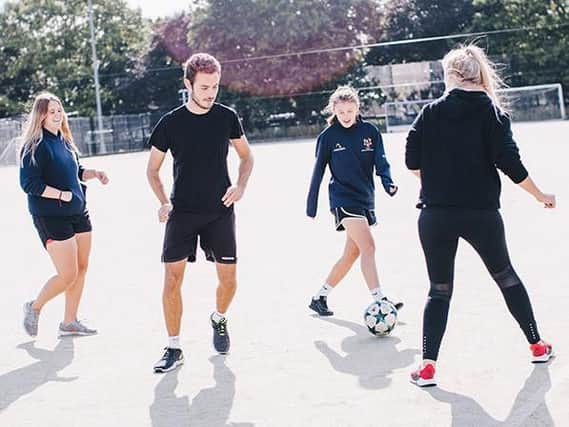Chichester researchers say football coaches can do their bit to find the next Gerrard or Lampard


New research by sports experts at the universities of Chichester, Portsmouth, and Limerick suggests reading the game should be taught to players from a young age, in tandem with ball skills, rather than as an advanced ability.
The study, published in Psychology of Sport and Exercise, found that players who incorporated scanning into their play were likely to improve their awareness, decision-making, and the quality and/or speed of their technical actions.
Advertisement
Hide AdAdvertisement
Hide AdFrank Lampard and Steven Gerrard were highlighted as players who incorporated the technique into their gameplay, but little research has explored how such behaviour is taught.
Lead author Craig Pulling, from the University of Chichester, said: “Coaches who didn’t subscribe to training players to scan the field and look around them tended to think players needed to focus on technical skills, then learn tactical skills.
“Whereas coaches who knew the benefits of scanning, and believed in the importance of teaching it young, believed the two went hand-in-hand.
“Our findings suggest that inexperienced coaches could benefit from being mentored by more experienced coaches, by being taught the value of scanning, and by being taught ways to integrate it into game play.”
Advertisement
Hide AdAdvertisement
Hide AdAcademics found that coaches most likely to teach scanning had more experience, higher coaching qualifications, and believed it should be taught from a young age.
Coaches who did not value it as highly, and so taught it less, tended to have no coaching qualification or a level one coaching qualification, were less experienced, and believed the skill could wait until players were better developed in ball handling.
The research team also found experienced coaches had developed feedback and instruction specifically to target the development of scanning – or visual exploratory activity – and to make it the focus of training sessions.
How it is taught varied enormously, with less experienced coaches trying to teach scanning by using direct instructions such as “always look up”, while more experienced coaches used questioning, such as “what did you see?”
Advertisement
Hide AdAdvertisement
Hide AdOne of the researchers, Dr Matt Dicks, from the University of Portsmouth, said: “It appears that higher coaching qualifications in tandem with a greater amount of coaching experience leads to coaches developing a positive attitude to the importance of training scanning.
“The coaches surveyed pointed out that they tended to try and improve scanning through direct instruction and questioning.
“There were indications though that scanning may be best enhanced through changing practice conditions such as altering the pitch size, number of players and the use of different coloured bibs or headbands, to require players to quickly learn the value of always looking around.
“Further work is now needed to examine which conditions of practice can best improve scanning. Our aim is to conduct this research with input from coaches to ensure that the findings can easily be applied into practice.”
Advertisement
Hide AdAdvertisement
Hide AdThe study examined how scanning was taught, when it was introduced, and how coaches evaluated its success.
It found the 303 football coaches surveyed fell into three groups: those who saw scanning as low priority, those who had some interest in it and those who incorporated it into their training as a matter of routine.
The authors have now called on football associations to focus on training and support of its coaches to develop such skills, and to incorporate scanning as an elementary skill, to be taught alongside technical and tactical skills.